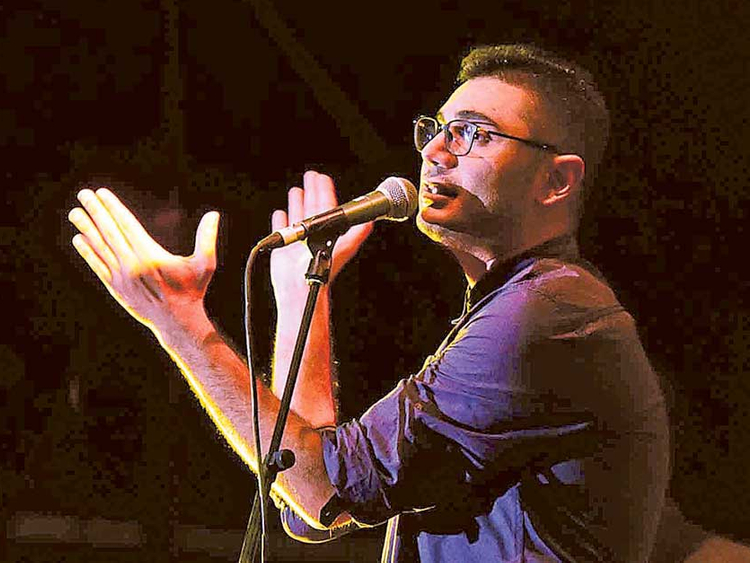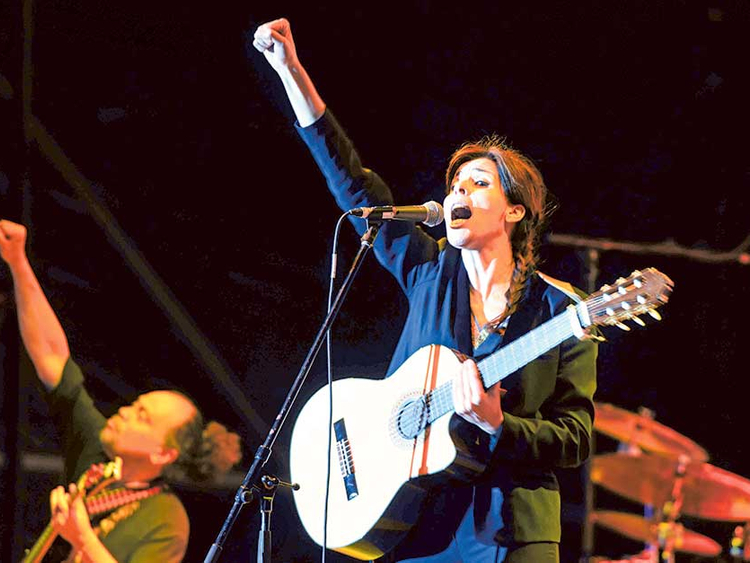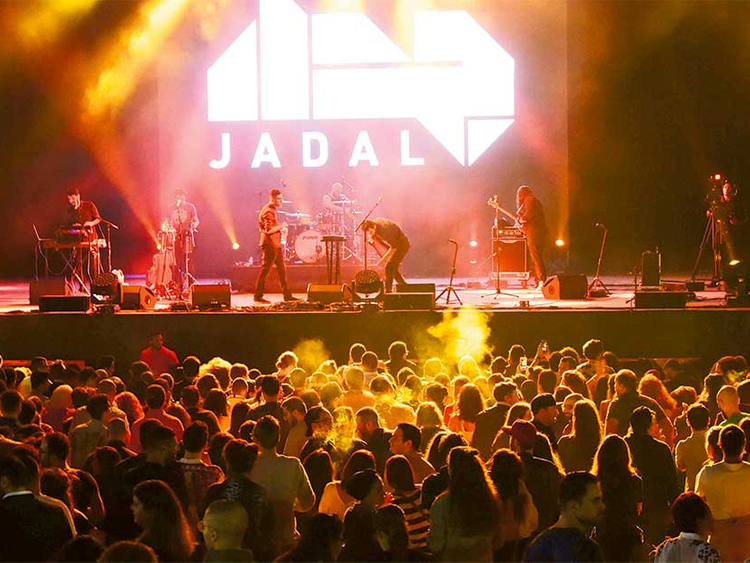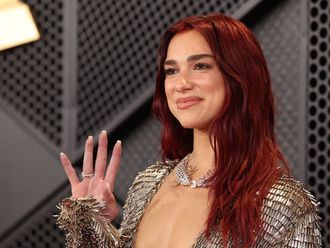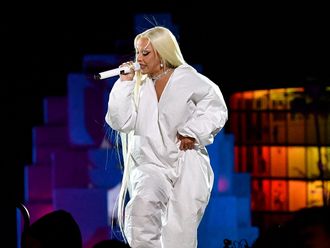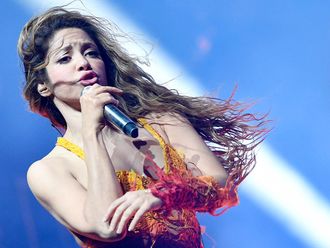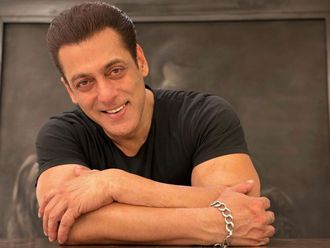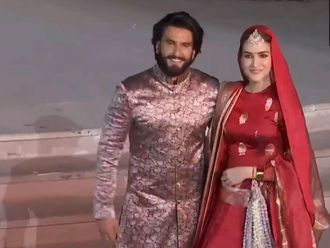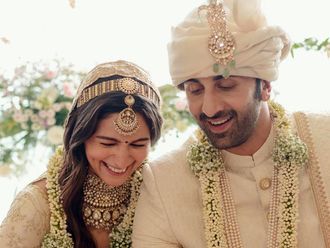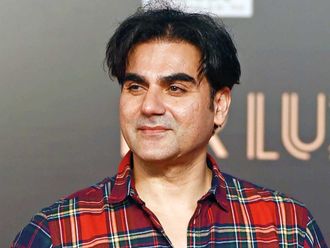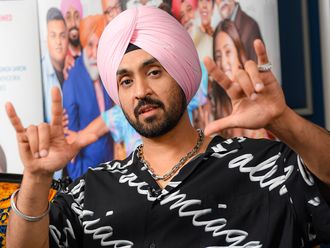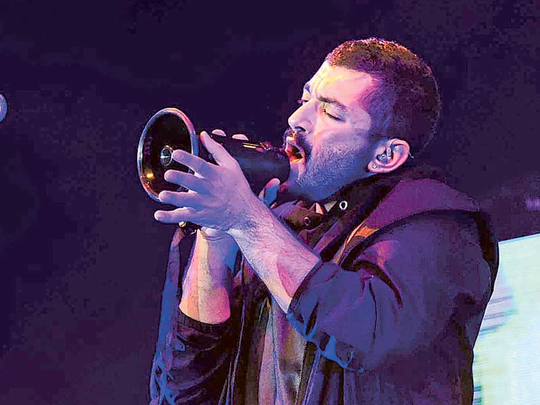
Dubai on Friday hosted the first Wasla music festival, an alternative Arabic event, bringing together bands from around the region who performed together before a packed audience.
The bands came from a number of Arab countries but almost tapped into a sense of nostalgia among today’s Arabs for old glories of Arabic music. They repackaged this nostalgia into a genre of music that one cannot find in mainstream media.
Dialects from every part of the Arab world could be heard in the audience: from Levantine to Egyptian and Khaleeji to North African. The genres of fans were similarly diverse, from stroller-pushing families to hipsters in eclectic outfits, multiple piercings and brightly dyed hair. Some had flown in from neighbouring countries to attend the festival while others had extended their holiday in Dubai to make it for the event.
Despite the diversity of the crowd, one commonality was perhaps a shared frustration with the direction in which the over-commercialised Arabic music industry is going. This was the generation of Arabs that Arabic music has lost. A far cry from the generations that grew up in the 1950s to the 1980s, many Arabs today have given up on finding new Arabic music on television or radio and are either switching to English music or desperately seeking alternative Arabic artists. The large turnout was perhaps testament to the fact that this kind of audience is no longer a fringe group, and that mainstream media is perhaps not as dominant a player in the Arabic music scene as it used to be.
Both the event and the audience were a microcosm of a small but growing segment of Arabs that have fallen out of the mainstream in the past generation. While the festival was organised by Arabs and for Arabs, its communication, marketing and organisation was done entirely in English. The MC’s, Saudi comedian Fahad Al Butairi and Egyptian actor Shadi Alfons, both spoke token amounts of Arabic before switching to American-accented English throughout the night. Among the audience, too, English was often more prevalent than Arabic.
It was clearly visible that for some of the visitors, certain performances evoked deep emotions, be it through a melancholy touch of homesickness or through the often challenging lyrics of the songs.
A quick survey of the audience showed that the most popular and waited-for acts were Algeria’s Souad Massi and Lebanon’s Mashrou’ Leila. Massi arrived on stage for a sunset performance to a rapturous audience of Arabs from all over the region, her widespread appeal owing to her ability to switch with ease from colloquial Arabic to Standard Arabic and even her native Berber. Her band kept the audience enthralled with its mixing of the tabla and electric guitar in some of her songs of classical Arabic poets.
Mashrou’ Leila, possibly the best known band in Wasla’s line-up, attracted the largest audience. The band performed before a screen displaying visualisations, often as daring as the band’s lyrics, that took the audience back to the hedonistic nightlife of Beirut, an underlying theme in a number of its tracks.
Jordan’s Jadal, perhaps the most underrated Arabic band, showed off its unique ability to blend old and new. Having shot to fame for its risky but well-received rock rendition of classical Arabic music giant Abdul Haleem Hafez’ popular song El Tobah, the band continued to display such contrasts in the most tasteful way.
It isn’t just the classics that the band can remake for a universal musical palette, but also the genre of sleaze music that began to dominate the Arabic music scene in the late 1990s and 2000s, when Jadal’s members and perhaps a large number of their fans were growing up. The audience at Wasla cheered particularly enthusiastically when it performed a rendition of sultry Egyptian singer Ruby’s popular but controversial song Leih Beydary Keda from the early 2000s.
Lead singer Mahmoud Radaideh at times stood on stage almost motionless with his hands held in front of him or behind his back, reminiscent of the styles of classical Arabic singers, with his voice and expressions doing the performing as drums were slammed and guitars rocked behind him.
One of the festival’s main closing acts was Emel Mathlouthi. The Tunisian native who lives and works in New York opened her set with an improvisation in English. The first performer of the night to do so, she continued to mix songs in English and Arabic. Whilst her almost gothic and very contemporary style was not an easy listening experience for all, the depth of emotion, poetry of her lyrics and finally the performance of Kalti Horra certainly won the audience.
The venue to kick-start a music festival like this could not have been better. As an Algerian member of the audience noted, there are only two cities on Earth where Arabs from the Atlantic to the Gulf can meet and get to know each other: Dubai and London. And Dubai’s status as perhaps the last Arab city with a truly pan-Arab composition makes it a perfect place to bring such music out of the fringe and into the mainstream.



